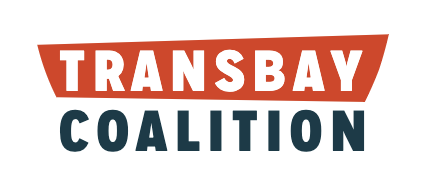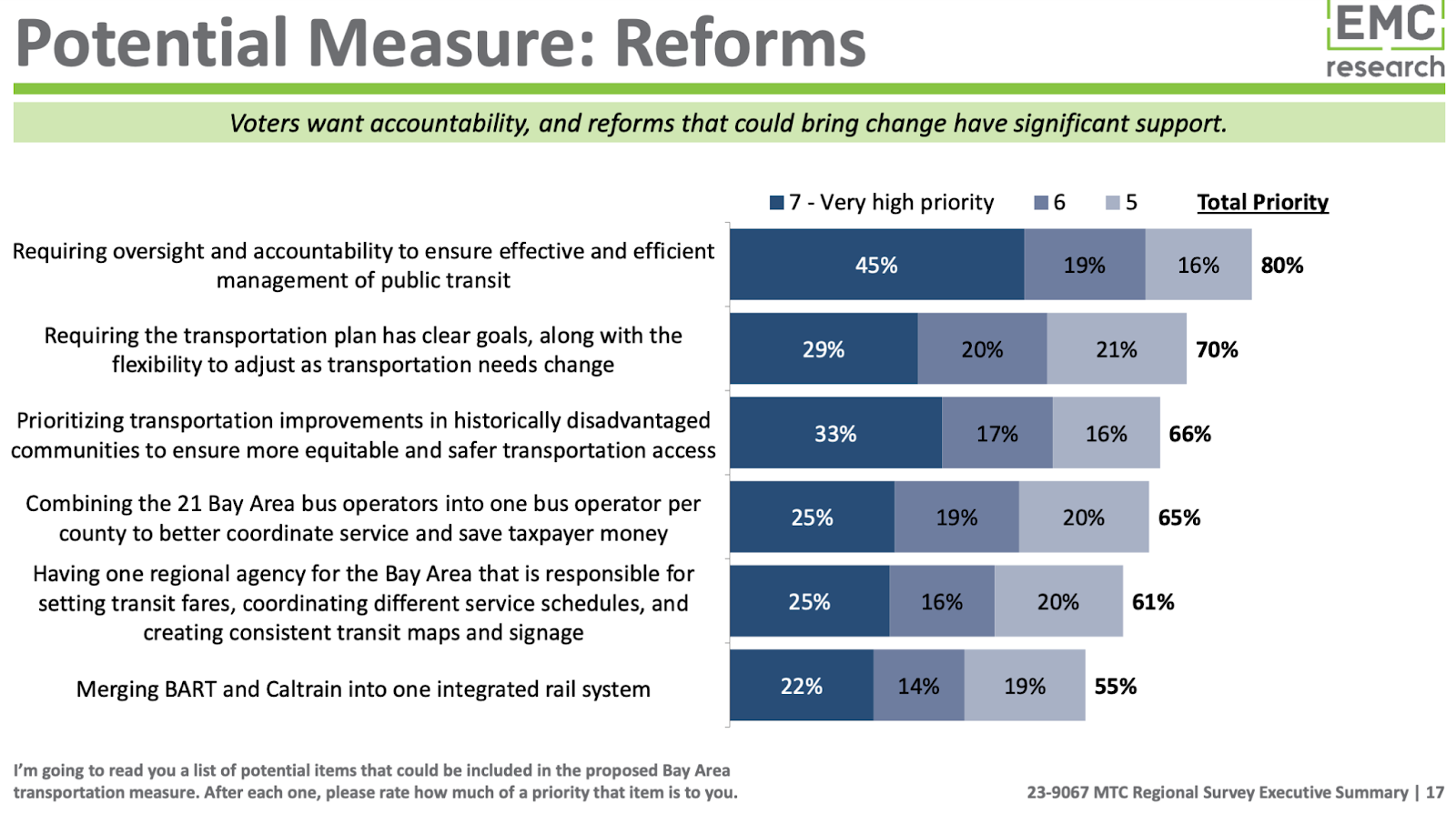At the Metropolitan Transportation Commission in December, at the Legislation Committee on December 8 and the full Commission on December 20, Commissioners discussed proposed policies to increase voter confidence and improve agency accountability in the context of a regional transportation funding measure. MTC is looking to sponsor legislation in 2024 for a ballot measure in 2026 (or later).
In his introduction to the Commission, Executive Director Andrew Fremier noted that “everything is on the table in this discussion, in order to improve the transit system, including strengthening the role of the regional network management efforts, as well as potentially looking at the governance structures of some of the operations that transit operators do today.”
Staff recommended that the authorizing legislation strengthen MTC’s role in a transit network management, in order to accelerate the implementation of the region’s “Transformation Action Plan” initiatives for integrated fares, schedules and other system coordination to improve rider experience.
In addition, MTC staff asked for Commissioner comments about potential consolidations of agencies and/or functions. MTC staff did not make a recommendation on the subject of consolidation, and asked Commissioners for guidance.
Commissioners support coordination over consolidation
Overall, commissioners were strongly supportive of coordination over and above consolidation. For example, Commissioner Chavez emphasized the desired outcomes of a well-coordinated system. “We want coordinated schedules, we want coordinated fares. If we focus on outcomes, the structures will follow.” Commissioners including Spering, Dutra Vernaci, Papan, Fleming and others favored coordination over consolidation.
Multiple comments from elected officials and stakeholders on the Caltrain corridor favored improving coordination of rail and transit service, but expressed opposition to the concept included in MTC’s poll of “merging BART and Caltrain into one integrated rail system.”
Voters demand an accountable and well-coordinated system
MTC’s poll results show that voters demand an accountable and well-coordinated system. When asked about the types of provisions to associate with a regional measure, a whopping 80 percent of voters believe “requiring oversight and accountability to ensure effective and efficient management of public transit” should be a priority. Bay Area voters continue to strongly support “creating a seamless Bay Area transit network with coordinated fares, routes, schedules and signage” with 73 percent of all voters finding this important, including 83 percent of weekly transit riders. A substantial majority also favor establishing “one regional agency for the Bay Area responsible for setting transit fares, coordinating different service schedules and creating consistent transit maps and signage” at 61 percent of all voters and 71 percent of weekly transit riders.
A majority of voters also supported poll options to “combine 21 bus operators into one operator per county” (65%) and to “merge BART and Caltrain into one integrated rail system.” (55%).
A framework approach to authorizing legislation
MTC is proposing to take a framework approach with the legislation, similar to the 2019 legislation that authorized the upcoming 2024 affordable housing bond. This approach includes a set of purposes, a set of potential funding mechanisms, and a set of broad expenditure buckets. MTC is considering multiple funding options including a sales tax, payroll tax, and income tax; the decision would be made closer to the time that a measure would be placed on the ballot.
Using broad categories is similar to the approach taken with recent county-based measures such as San Mateo County Measure W, and is different from the historical approach taken with regional bridge toll measures, which contained a detailed, itemized list of projects that is difficult to change. MTC’s recent poll showed that 70% of voters prefer this broader approach “Requiring the transportation plan has clear goals, along with the flexibility to adjust as transportation needs change.
General support and next steps
Overall, Commissioners supported moving forward with the authorizing legislation, even though the polling is not currently strong enough to surpass the two-thirds threshold. The measure would go on the ballot several years in the future, no sooner than 2026. Commissioners talked about the need to make improvements sooner, to increase voter confidence.
The MTC expects to vote on its recommendation for the authorizing legislation on January 24, following a discussion of the recommendation at the legislation committee on January 12. Information about the recommendations will be posted at MTC’s agenda portal here.

